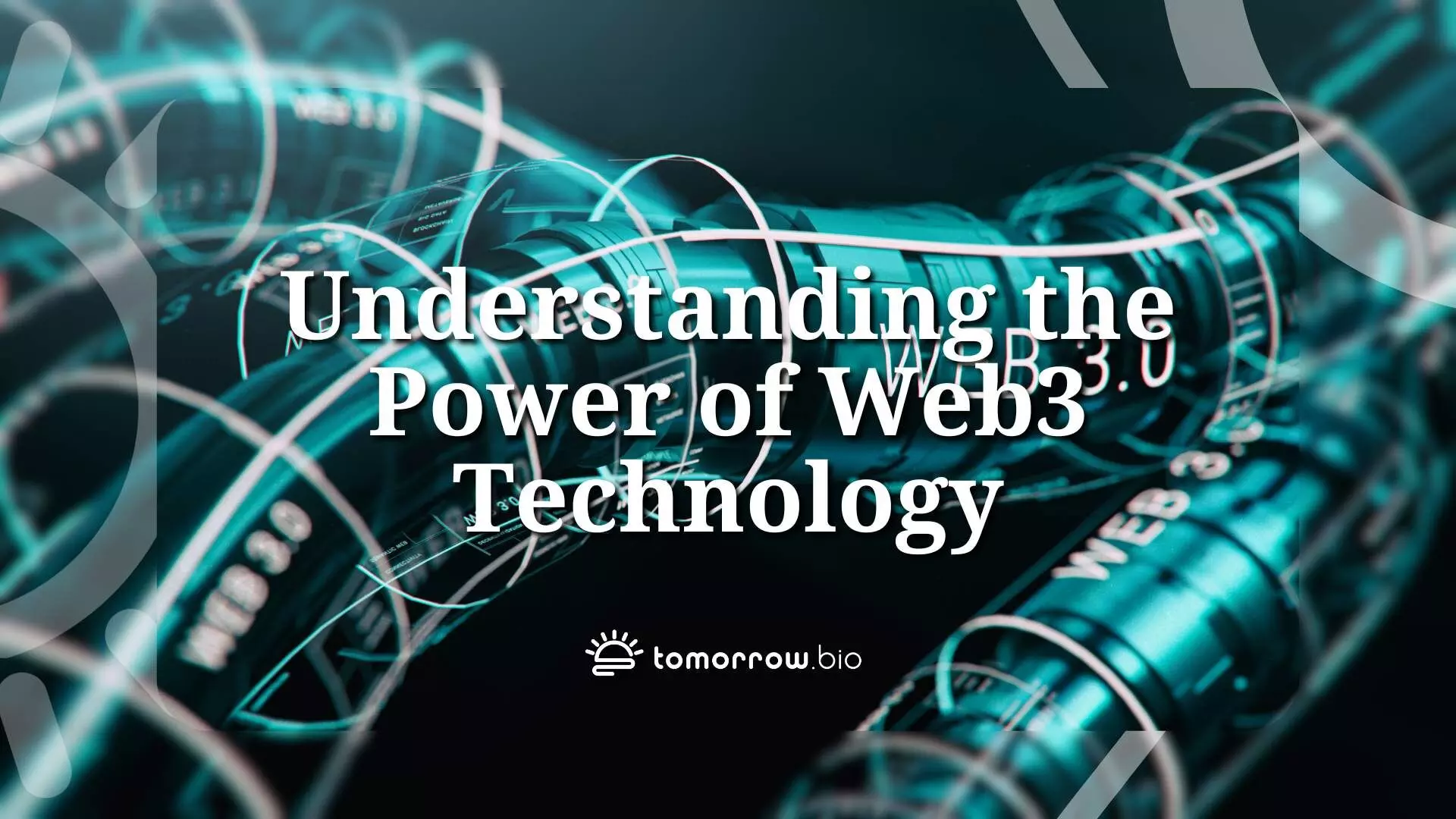Live
- Horoscope for November 28: Decoding Cosmic Clues for All Zodiac Signs
- Aishwarya Rai Bachchan’s Sister-in-Law Shrima Rai Shares Cryptic Post After Taking a Dig at Her
- Karnataka: Congress ministers indulge in lobbying ahead of Cabinet reshuffle
- Sujata joins duty after Odisha govt rejects leave extension
- Tur, urad prices have fallen in last 3 months: Govt
- NASA Alert: 130-ft Asteroid 2024 WQ2 Racing Past Earth at Over 62,000 km/h – Should We Be Concerned?
- What is UNSC Resolution 1701 and How it Relates to the Israel-Lebanon Ceasefire
- CM Mohan Majhi reviews preparedness at BJP state office ahead of PM Modi's visit
- Foods that boost the brain and sharpen memory
- Lisandro Martinez available for selection against Bodo/Glimt confirms Amorim
Just In
Web3 Explained: How Decentralization is Changing the Internet Forever


The internet has come a long way since the early days of simple websites and dial-up. We now live in a world of Web2 where Facebook, Google and Amazon...
The internet has come a long way since the early days of simple websites and dial-up. We now live in a world of Web2 where Facebook, Google and Amazon are the big players. As powerful as they are, they’ve also shown us the flaws: centralization, data exploitation and limited user control. Enter Web3, the decentralized internet that’s gaining traction—and it’s flipping the script on our digital lives.
Let’s get into how Web3 differs from Web2, why this new version of the internet is exciting, and where it means we're going.
What’s Wrong with Web2?
Before we get into Web3, we need to understand the limitations of Web2—the internet we’re all using right now. The web you know is controlled by a few big corporations. This is a highly centralized model where all the power and control of your data and online experience is with a few tech giants. They store your data, monetize your activity and have final say on what happens on their platforms. This means privacy concerns and these companies have huge influence over our newsfeeds.
Think of the internet as a big shopping mall. Right now a few companies own most of the stores, run the security and control who gets in or out. They’re also collecting information on every item you browse or buy and you have little say in it. Web3 is like a flea market where everyone owns their own stall and transactions are peer to peer. You, and you alone, decide who gets access to your information.
Web3 to the Rescue: What is It?
Web3 is the next internet, but unlike Web2 it’s built on decentralized tech like blockchain. Think of blockchain as a digital ledger that’s transparent, secure and can’t be changed. This means users can take back control of their data and online experiences.
In Web3 there’s no need for a middleman (a bank or tech company) to handle transactions, data storage or authentication. Instead these tasks are managed by a network of computers (or nodes) that all work together to maintain the system. The result? A more democratic, transparent and user-centric internet.
And it’s not just theoretical. Bybit, a leading platform in the decentralized finance (DeFi) space, is living proof. Whether you’re new to crypto or looking to get into DeFi, following the Bybit app download process puts you in the driver’s seat to explore this new digital world. Bybit has tools for trading, investing and staking and it’s all part of the Web3 ecosystem where you have more control over your assets.
Key Differences Between Web2 and Web3
To really get how Web3 changes the game, let’s look at some of the main differences between Web2 and Web3.
Ownership
In Web2 the platform owns everything you upload or create (think about how Facebook owns your data). In Web3 you own your data. You control who sees it, who gets access to it and if you want, how it can be monetised.
Decentralization
Instead of big corporations like Google or Amazon controlling everything, Web3 is powered by decentralised networks. There’s no single point of control which makes the system more secure and harder to manipulate.
Identity
In Web2 you log in with your email or social media accounts. These accounts are controlled by third parties. In Web3 your identity is tied to cryptographic keys you own. This means you can interact across platforms without having to trust a third party with your personal data.
Why Web3 is so cool
Web3 isn’t just a minor update to the internet; it’s a fundamental change in how we interact online. Here’s why people are excited:
User Control
In Web3 you own and control your data. No need to rely on third party companies to manage your info which reduces the risk of data breaches and privacy violations. Want to stop a company from using your data? In Web3 you can turn it off.
Economic Opportunity
Web3 introduces new ways for people to make money online. With the rise of DeFi you can lend, borrow and trade assets without the need for traditional banks. Platforms like Bybit are at the forefront of this movement making it easier for everyday users to participate in decentralised markets.
More Innovation
Because Web3 is decentralised anyone can build and launch applications without needing permission from a central authority. This could lead to an explosion of innovation where smaller developers and startups have the same opportunities as established names.
Web3 Ahead
Web3 is still in its infancy but the potential is gargantuan. Over the next ten years we’ll see more and more applications that challenge the centralised status quo of Web2. There’s still work to complete on scalability and user adoption but the future of the internet looks much more open and democratic with Web3 peeking over the horizon.

© 2024 Hyderabad Media House Limited/The Hans India. All rights reserved. Powered by hocalwire.com






